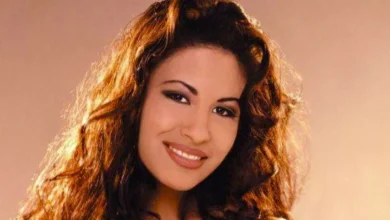
Michael Bublé Ethnicity and Parents Origin
Michael Bublé is a celebrated Canadian singer, songwriter, and actor known for his smooth voice and captivating performances. Born on September 9, 1975, in Burnaby, British Columbia, Bublé has made a significant mark on the music industry, blending jazz standards with contemporary pop. While many fans admire his talent, fewer may know about his ethnic background and the origins of his parents, which have played a role in shaping his identity and artistry.
Michael Bublé Cultural Background
| Category | Musicians |
|---|---|
| Full Name | Michael Bublé |
| Birthdate | September 9, 1975. |
| Birthplace | Burnaby, British Columbia. |
| Ethnicity | Mix of Croatian, English, Irish, and Italian descent. |
| Father Ethnicity | Croatian descent. |
| Mother Ethnicity | English, Irish, and Italian descent. |
Michael Bublé, the celebrated Canadian singer and songwriter, embodies a rich cultural background that reflects his diverse heritage and influences. Born on September 9, 1975, in Burnaby, British Columbia, his upbringing was marked by a fusion of various cultural elements, primarily stemming from his parents’ origins. This unique blend has significantly shaped his musical style and artistic expression.
Michael Bublé Cultural Heritage
Bublé’s ethnic background is a mixture of Croatian, English, Irish, and Italian influences. His father, Lewis Bublé, is of Croatian descent, with roots tracing back to the village of Kotor. This connection to Croatia is essential to Bublé’s identity, as it introduces him to a European cultural richness. The stories and traditions passed down from his Croatian ancestors have helped inform his appreciation for family and community, which he often references in his music and public appearances.
On his mother’s side, Amber Bublé brings a blend of English, Irish, and Italian heritage. This diverse ancestry further enriches his cultural tapestry, providing him with a wide array of musical and artistic influences. The amalgamation of these backgrounds not only enhances his identity but also contributes to the broad spectrum of sounds and styles found in his music.
Michael Bublé Musical Influences
Growing up in a culturally diverse environment, Bublé was exposed to various musical genres from an early age. His family’s appreciation for music played a pivotal role in shaping his artistic direction. Bublé’s love for jazz was sparked by listening to classic artists like Frank Sinatra, Ella Fitzgerald, and Tony Bennett, whose influence is evident in his style. He seamlessly blends traditional jazz with contemporary pop, appealing to a wide audience.
Bublé’s multicultural background allows him to draw from a rich array of musical traditions. His performances often include elements of swing, R&B, and even elements of pop and rock, creating a unique sound that resonates with fans across different cultures. This versatility is a direct reflection of his upbringing, where diverse musical influences were celebrated.
Michael Bublé Personal Values and Community Connection
Michael Bublé’s cultural background also shapes his values and personal connections. Raised in a close-knit family, he emphasizes the importance of love, support, and community in his life. His parents instilled in him a strong work ethic and a sense of loyalty, which is evident in his interactions with fans and peers alike. Bublé often speaks fondly of his upbringing and the lessons he learned from his parents, highlighting the role of family in his success.
His appreciation for community extends beyond his personal life; Bublé actively engages in charitable work, supporting various causes such as children’s health and music education. He understands the significance of giving back, which resonates with his cultural values and upbringing.
Michael Bublé Ethnicity
Michael Bublé is of mixed ethnicity, a factor that significantly shapes his musical identity and artistic expression. His father, Lewis Bublé, is of Croatian descent, originating from a family that emigrated from the small village of Kotor in Croatia. This connection to Croatian culture is a vital aspect of Bublé’s heritage, offering him a unique perspective that informs his artistry. His mother, Amber Bublé, brings her own rich background to the mix, with English, Irish, and Italian ancestry. This diverse heritage not only enriches Bublé’s personal life but also provides him with a plethora of cultural references that resonate throughout his music.
Bublé often expresses pride in his multicultural background, emphasizing how it has shaped his understanding of music and performance. His diverse ancestry is evident in his eclectic repertoire, which spans traditional jazz, swing, and contemporary pop standards. By embracing various musical styles, Bublé creates a distinctive sound that resonates with a broad audience, transcending cultural boundaries. His ability to blend different genres and influences has made him a global icon, allowing listeners from various backgrounds to connect with his music on a personal level. This celebration of diversity in his artistry serves as a testament to his roots and the rich cultural tapestry that informs his work.
Michael Bublé Professional Career
Michael Bublé is an acclaimed Canadian singer, songwriter, and actor whose career spans over two decades, marked by numerous accolades, chart-topping albums, and sold-out concerts worldwide. His unique blend of jazz, pop, and swing has captivated audiences and solidified his place in contemporary music history.
Michael Bublé Early Career
Bublé’s passion for music began at a young age. He started singing in local clubs and talent shows, honing his craft and developing a unique style that would later define his career. His big break came in 2000 when he released his self-titled debut album, which featured a mix of jazz standards and original songs. The album was well-received, leading to a nomination for a Juno Award and catching the attention of industry insiders.
In 2003, Bublé gained widespread recognition with the release of his second album, “It’s Time.” This album included popular tracks like “Haven’t Met You Yet” and showcased his ability to breathe new life into classic standards. It achieved commercial success, reaching multi-platinum status in several countries and establishing Bublé as a formidable force in the music industry.
Michael Bublé Rise to Stardom
Bublé’s career skyrocketed with the release of his third studio album, “Call Me Irresponsible,” in 2007. The album debuted at number one on the Billboard 200 chart and won a Grammy Award for Best Traditional Pop Vocal Album. Hits like “Everything” and “Lost” further showcased his versatility and emotional depth as a vocalist. Bublé’s popularity continued to soar, and he became a regular feature on television, performing at prestigious events and award shows.
His 2009 album, “Crazy Love,” solidified his status as a leading artist in the music industry. The album included the chart-topping single “Haven’t Met You Yet” and earned him his second Grammy Award. Bublé’s success was characterized by his ability to connect with audiences through heartfelt lyrics and captivating performances.
Michael Bublé Continued Success and Evolution
Over the years, Bublé has released several successful albums, including “To Be Loved” (2013), “Nobody but Me” (2016), and “Love” (2018). Each album has demonstrated his growth as an artist, incorporating contemporary pop influences while remaining rooted in the jazz and swing genres he loves. His versatility as a performer has allowed him to collaborate with various artists across different genres, expanding his musical repertoire.
Bublé’s live performances are a significant aspect of his career. Known for his charismatic stage presence and engaging interactions with the audience, he has embarked on multiple world tours, often performing to sold-out arenas and theaters. His concerts are a celebration of music, blending humor, storytelling, and, of course, his iconic vocals.
Michael Bublé Recognition and Impact
Throughout his career, Michael Bublé has received numerous accolades, including multiple Juno Awards, Grammy Awards, and American Music Awards. He has sold over 75 million records worldwide, making him one of the best-selling music artists in history. His influence extends beyond his recordings, as he has revitalized interest in traditional pop and jazz standards among younger generations.
Bublé’s dedication to his craft and his ability to connect with audiences through his music has left an indelible mark on the music industry. He has inspired countless artists and remains a beloved figure in contemporary music.
Michael Bublé Parents’ Origin
Lewis Bublé, Michael’s father, was born in Vancouver, Canada, to Croatian immigrants who sought a better life in North America. His experiences growing up in a multicultural environment have profoundly impacted Michael, instilling a sense of appreciation for his heritage. Lewis worked as a salmon fisherman and later took on various jobs, emphasizing the value of hard work and perseverance to his children.
Amber Bublé, Michael’s mother, hails from a mixed background that includes English, Irish, and Italian roots. Her family’s history adds another layer of cultural richness to Michael’s upbringing. Amber was a homemaker who played a significant role in nurturing her son’s musical talent. She often encouraged him to pursue his passion for singing, which led to Bublé’s early involvement in music through school and local performances.
Together, Lewis and Amber fostered an environment that celebrated diversity and creativity, allowing Michael to explore his interests without limitations. Their support and encouragement were crucial in his development as an artist, ultimately leading him to achieve global success.
Michael Bublé: Siblings
Michael Bublé, the internationally acclaimed Canadian singer, is not only known for his incredible vocal talent but also for his close-knit family. He has three siblings who have played an essential role in his life, contributing to his upbringing and supporting him throughout his career. This article explores the Bublé siblings, highlighting their individual lives and the bond they share with Michael.
Michael Bublé Sibling Overview
Michael Bublé has one older sister, Brandee Bublé, and two younger siblings, a brother named Charles Bublé and a sister named Crystal Bublé. Growing up in Burnaby, British Columbia, the Bublé family fostered a strong sense of togetherness, with music being a significant part of their lives.
Michael Bublé Older Sister Brandee Bublé
Brandee, the eldest sibling, was born on March 20, 1974. Brandee often supports Michael during his performances and events, showcasing the close relationship they share. She pursues various endeavors, including working in the beauty industry, and actively participates in her brother’s musical projects. Her unwavering support and encouragement have been a source of strength for Michael throughout his career.
Michael Bublé Younger Brother Charles Bublé
Charles Bublé, born on September 27, 1980, is the middle sibling and shares a close bond with Michael. While Charles has chosen a more private life compared to his famous brother, he has also been involved in the music scene. He has occasionally contributed to Michael’s musical projects, including performances and songwriting. Their relationship is characterized by mutual respect and camaraderie, with Michael often expressing gratitude for the support of his brother.
Michael Bublé Younger Sister Crystal Bublé
Crystal, the youngest sibling, was born on September 22, 1986. Like her siblings, she has a passion for music and has pursued her interests in the arts. Crystal has appeared alongside Michael at various events, further emphasizing the strong family ties within the Bublé household. She has worked in various roles, including being an artist and model, and she often shares moments from her life on social media, giving fans a glimpse of the family’s dynamic.
Conclusion
Michael Bublé’s ethnicity and the origins of his parents are integral to understanding his artistic identity and the distinctive sound he brings to the music scene. His rich cultural background—encompassing Croatian, English, Irish, and Italian influences—has played a significant role in shaping his musical style. Growing up in a multicultural household, Bublé was exposed to a wide range of musical genres and traditions, which helped him develop a sound that blends classic jazz, pop, and swing. This fusion resonates with audiences around the globe, making his music universally appealing.
Furthermore, the unwavering support and encouragement from his parents have been pivotal in his journey to success. Lewis and Amber Bublé instilled in him the importance of hard work, perseverance, and the value of cultural heritage. Their influence not only nurtured his passion for music but also provided him with a strong sense of identity. As a result, through his songs and performances, Bublé pays tribute to his roots while inspiring listeners to embrace their own diverse backgrounds. In doing so, he not only entertains but also fosters a sense of connection and appreciation for the rich tapestry of cultural influences that shape our world.



